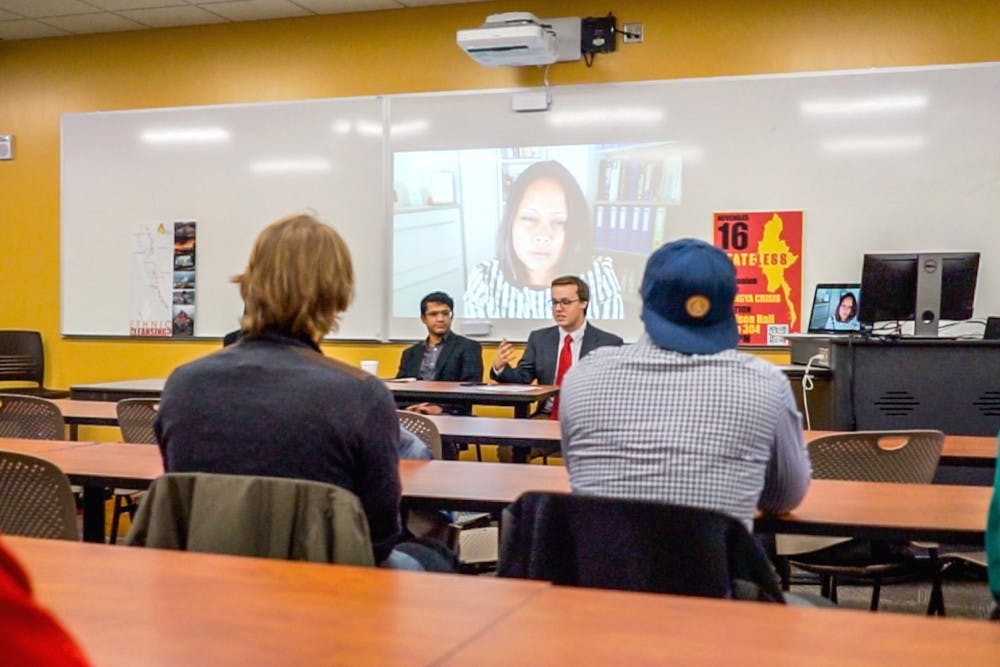Miami University faculty and outside experts called attention to the Rohingya genocide on Thursday night, raising awareness about an international crisis many Americans know little about.
The Rohingya are a majority-Muslim ethnic minority group who have long lived in the Rakhine state of the Buddhist nation of Myanmar (formerly Burma).
The Arakan Rohingya Salvation Army (ARSA), a small group of insurgent Rohingya separatists, attacked more than 30 police posts on August 25, triggering a campaign of mass killings, rape and the burning of Rohingya villages by the Burmese military.
Anita Schug is the spokesperson for the European Rohingya Council and an ethnic Rohingya herself. Schug said about 700,000 Rohingyas have fled to nearby Bangladesh.
"So, people are scared and the Rohingya community in Rakhine are under constant fear, fear of losing their lives at any time, any hour, any day," Schug said. "They don't even know that they will be alive in the coming hours or days. So, the situation is very dire, and we are expecting more people to flee."
Tani Sebro, assistant professor of diaspora studies, human rights, and transnational migration, said the language the media and states use to describe the crisis is important.
"The UN and a lot of journalists have been using this word, 'ethnic cleansing,'" Sebro said. "I suggest that we start alleging that this is actually genocide."
If the UN or its member states recognizes the crisis as a genocide they would be forced to act, Schug said.
This is only the latest wave of violence in years of persecution. The UN considers the Rohingya one of the most persecuted minorities in the world, and the genocide and state-sponsored violence has been going on since 1978.
Sebro said the causes of the violence are the inciting of violence against Muslim minorities by Buddhist monks, the government's and venture capitalist firm's attempts to grab land in a country rich in natural resources, the creation of a pipeline from a seaport in Rakhine to China, and the preservation of state sovereignty in a country embroiled in civil war and clashing ethnic groups.
Sebro and Schug said students can make a difference by raising awareness, fundraising, calling their representatives and demanding action by the U.S. government, and being conscious of the businesses they shop at so as not to line the pockets of corporations that are profiting off the violence and instability in Myanmar.
Students also need to remember that real people face this genocide every day.
Enjoy what you're reading?
Signup for our newsletter
"I would like all of you to think of Rohingya not as Muslims, not as poor people or something else," Schug said. "Consider them only as human beings and only that way you can see that we are normal people like you."
Junior Gmakand Sabik organized the event in collaboration with model UN, the department of global and intercultural studies and international studies and faculty from Bangladesh. Being Bangladeshi himself, Sabik wanted to raise awareness about an issue many students don't know about.
"Miami has a global community here, so I feel like that's the least you can do, just know about other parts of the world," Sabik said.




